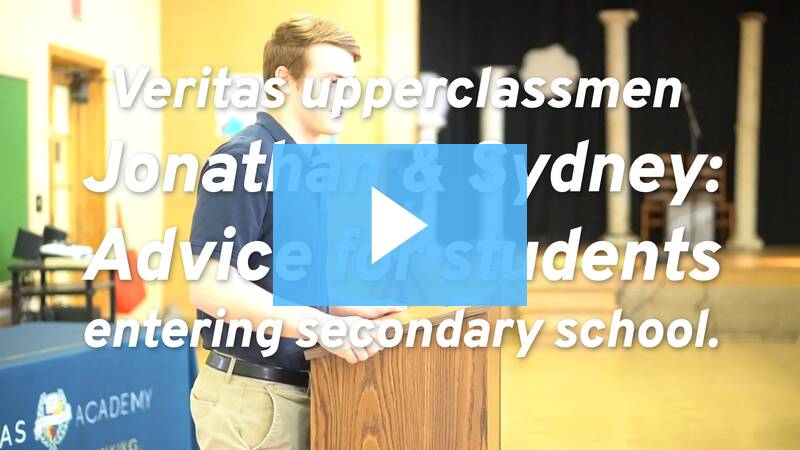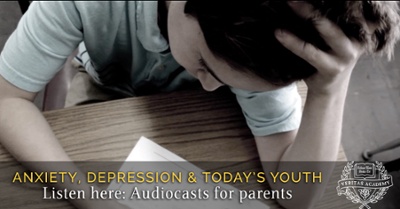I’m pretty sure you couldn’t pay me enough to go back to seventh grade.
Now, perhaps if it meant going back with my current mindset, with all the wisdom, hindsight, and experience I’ve gained in the decades since my foray into junior high, I just might jump at the chance for a re-do.
But to immerse myself as I was back into the confusion and changes that those years wrought? Nope.
I remember it was at the start of seventh grade when my two best friends from the previous years just decided they were done talking to me. I’m still not sure why, and at the time it broke my heart. Romantic relationships and all their complexities (that 12 year olds aren’t really equipped to handle) began to blossom...or not blossom in the way I dreamed. This was before the days of social media, thank goodness. Even so, the precarious social situations made school - and the learning that was supposed to come with it - all the more difficult.
The junior high and early high school years are tumultuous. So many changes - not just in the way school days are structured, but also in the hearts, minds, and bodies of our kids. Parents who are treading this transition with their children are in an unenviable season, but thank goodness you’re not alone. Especially when you’re connected in a solid Christ-based school or church community, you’ve got plenty of others walking beside you, and even better, wiser ones who have gone ahead and come out the other side cheering you on.
 Last week, Veritas held our House Induction Ceremony Day, where sixth graders learn which house they’ll be part of (kind of like a homeroom - but better - that they’ll have for the duration of their high school career) and are welcomed into that house by its current members with gifts, pomp, and a few zany traditions (this is Veritas, after all, and zany traditions have made themselves part of our fabric).
Last week, Veritas held our House Induction Ceremony Day, where sixth graders learn which house they’ll be part of (kind of like a homeroom - but better - that they’ll have for the duration of their high school career) and are welcomed into that house by its current members with gifts, pomp, and a few zany traditions (this is Veritas, after all, and zany traditions have made themselves part of our fabric).
After the ceremony, sixth graders and their parents heard from upper school teachers, students, and administrators, who gave some sage words of wisdom to help make the transition into secondary school smooth and life-giving, before sending the kids off to spend the day shadowing their seventh grade buddies.
Whether you’ve got a child heading into junior high or navigating middle school, or you’re a few years away yet with your little one, here are some insights from Veritas secondary teachers Leslie Bustard and Rhonda Forbes (also parents to now-grown and high school children) to help you and your child not only survive the transition, but grow and thrive!
Tips for Parents and Kids to Thrive in Middle School, Junior High, and Beyond
1) Accountability...without hand-holding
It can be a tricky balance, but it’s an important one: helping keep your student accountable without doing everything for him...or jumping in to fix his mistakes. Here are some things to keep in mind regarding the changes you and your student will face:
- Their everyday school life and work will not have the oversight of one teacher; they will have many teachers (each covering a different subject). They will need to learn to juggle the different expectations of each teacher and the different amounts of work.

- There will probably be less regular communication to home from your child’s teachers than in grammar school. Parents, this means that it’s good to take advantage of Back to School Night and Parent Teacher Conferences, but it also means that more falls on your student to make sure they’re keeping up with everything.
- If they’re absent, they need to stay on top of missed work! There won’t always be a teacher running behind them reminding them of what they need to do. The students need to be proactive to complete missed work.
- Have an organization system that works! Whether it’s binders, separate notebooks, planners, folders, etc. - establish a system before school starts so your student can stay organized. This goes for lockers, too! Help your student think through how to be organized in his locker. Shelf units, plus magnet pencil holders, and dry erase boards are some helpful tools to use.
2) Establishing good work habits
The way that students are assessed and the way they learn begins to change now. Be ready!
- There are usually fewer graded pieces now, meaning that each assignment and test is usually worth more points. This means that missed work is a bigger deal!
- Students will often transition from weekly tests in various subjects to studying for comprehensive tests that cover a longer time period of study.
- Note-taking is crucial now! Teachers should have been preparing students for this in grammar school, so now is the time for your student to exercise good note-taking habits. If they or you feel like they are struggling to take good notes, encourage them to be proactive and to show the teacher their notes after class to ensure they’re catching what’s important and on the right track.
- Students will have more independent studying requirements than in elementary school. Therefore, it’s important that they develop focused study habits and resist procrastination! Having a distraction-free, tech-free space at home and dedicated time frame to complete homework will help. The bedroom might not be the best place for this, but rather a more “public” place like a nook in the kitchen may help keep them on task.
- Lots of reading will be required. Students should not take the shortcut or easy route! There's reason we read so many of the “Great Books,” and Spark Notes won’t cut it to give your child the rich and rewarding experience that comes from truly reading their assignments.
To Veritas parents, Mrs. Bustard says: “You are making an investment in this certain type of education, one that is rooted in reading the Great Books. They will develop virtues of steadfastness, perseverance, and faithfulness when they learn to really read what they are assigned. They are not doing a challenging curriculum for the sake of being challenging. There is an understanding that reading these books and doing the work of attending to these ideas and words can develop something sound and good in them.”
True, your child may not care for some of the books as much as others. But just as we all have had to learn to pull ourselves up and do things that we are not otherwise inclined to do, this is a time your child can establish good habits in this area, too. Mrs. Bustard suggests encouraging your child over the summer to read something that they wouldn’t necessarily be inclined to read otherwise, to practice flexing these muscles. - There will be fewer crafts, games, and songs to learn the materials, but (at least here at Veritas) that doesn’t mean the fun is over. We have plenty of delightful events to enrich the learning experience - feasts, hands on activities, and more - but now in the logic stage the kids are moving on from learning the facts to thinking, discussing, and analyzing...and that can prove to be more fun for this age than any game or craft.
Yes, all of these changes can be overwhelming, for both students and parents. Mrs. Forbes advises parents to just “take a deep breath. Just because they are a straight-A student in grammar school does not mean that they’ll be that way in secondary. It’s a very different world. They’re learning how to organize, they have to be responsible.
The beautiful part is that nobody cares about what your grades are in 7th and 8th grade when you go to college. They’re not on your transcripts. So parents, use this times to not ‘fix it.’ Use the 7th and 8th grade to tell your child ‘You need keep on top of your grades. You need to do what it takes.’
"Don’t circumvent this, because you want them to row their own boat in 9th grade and beyond. By 9th grade, I wanted my kids to be independent, doing their own homework, responsible and organized enough to manage their life, because we wanted them to be able to have a job, and play sports, and be in plays, and take music lessons, and you can’t do that without good time management. And 7th and 8th grade is when they learn that.”
3) Social and Emotional Minefields
The school curriculum changes are only part of the equation. You and your child will want to be ready for the social and emotional upheavals that can accompany a shift into this new phase of life.
- Perception is not always reality
Mrs. Forbes cautions parents to step back and realize that sometimes their 12-year-old’s perceptions of reality are not always the actual reality. And perhaps the best gift you can give to your kids when it seems that their emotions are spiraling out of control is to call to mind Philippians 4:8 - “whatever is true, whatever is noble, whatever is right, whatever is pure, whatever is lovely, whatever is admirable—if anything is excellent or praiseworthy—think about such things.” Help them to take their thoughts captive to the mind of Christ.
“Don’t give them the opportunity to stir and stew and cycle through the angst of growing up,” Mrs. Forbes says. In other words, you don’t need to have them rehash EVERYTHING that happened that day, because that means they will likely fixate on things that might not have been lovely, and they can blow it out of proportion. Instead, ask them to tell you one wonderful or fun thing that happened.
“If you let them get away from it all, an hour later they’ve processed things differently. Today, kids are never away from each other, and they get to cycle through everything over and over on social media. Let them get away from it all at home. Encourage them that now is the time to refocus and get on with our lives.”
- Sometimes, there might be a situation - or a particular person - who seems to be causing a dose of strife for your child. Mrs. Forbes encourages parents in those moments to remember that we’re all sinners. Resist the urge to stew over it yourself. Instead, tell yourself and your child, “Okay, God’s working on them, and He’s working on you. Let’s pray about it. It’s amazing what praying for somebody changes in you."
- Don’t move every obstacle out of their way, says Mrs. Forbes. When we clear the roads for them, we strip them of the valuable gift learning from their hardships developing those problem-solving skills. Yes, as a mom, it’s hard to watch our kids in pain. But not allowing them to experience some of that pain now will actually be more painful for them later.
Words of wisdom for parents of younger kids
Mrs. Forbes has made a noteworthy observation regarding parents of small children today. So often, parents are trying to let their little kids learn hard lessons at too young of an age, abandoning them to “make their own choices” and wasting massive energy and words reasoning with them before they’re ready. But then as the kids get older, parents want to clamp down and rein them back in.
“That’s the exact opposite of what we should be doing,” Mrs. Forbes exclaims. “We should be guiding them when they’re young so that we can step back and be a safety net when they get older. Not to save them, but to let them see when they fall that ‘Yep, it was bad...and here’s how we’re going to love you through it.’ Then, when they’re on their own, they don’t need that safety net.”
In the junior high years, our kids begin to argue, question, and reason through things in earnest. It’s how they’re naturally wired, and the Classical education model takes full advantage of this by introducing the “logic” phase of the trivium here. In school, their classes shift toward a discussion and reasoning-based focus, encouraging kids to actively engage in their subjects and with their teachers and classmates, working through tough questions and learning how to seek out and stand on truth. This is part of the way we help prepare your kids for the real world, cultivating students who can think clearly and critically. Because no matter what career they end up choosing, those are skills that will always be exceptionally valuable.









